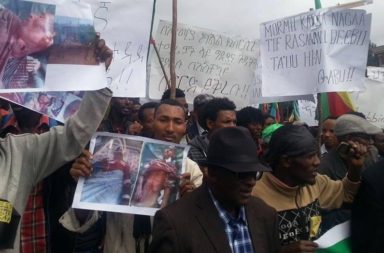If you are pregnant, do not visit South America this year!
A global Zika virus alarm was issued by the World Health Organization (WHO):
“A disease linked to the Zika virus in Latin America poses a global public health emergency requiring a united response.”
The experts are worried that the virus is spreading far and fast, with devastating consequences.
The infection has been linked to thousands of babies being born with underdeveloped brains in Brazil.
WHO director general, Margaret Chan called Zika an “extraordinary event” that needed a coordinated response.
“I am now declaring that the recent cluster of microcephaly and other neurological abnormalities reported in Latin America following a similar cluster in French Polynesia in 2014 constitutes a public health emergency of international concern.”
What will happen in Rio with the Olympics this summer?
Back in 2009, when the Olympic Committee awarded the 2016 Summer Games to Rio de Janeiro, the once shiny Brazilian economy could have never forecasted the challenges of the years ahead. With the political and economic turmoil overshadowing the event, a possible epidemic of the Zika Virus also threatens the success of the first Olympic Game hosted in South America.
The Zika outbreak in Latin America reached pandemic levels in 2015, putting governments and the World Health Organization under alert. Margaret Cho, WHO´s Secretary General, stated earlier this week that “the level of alarm is extremely high” for the region. Since last spring, more than 20 countries have reported cases of Zika, and the organization forecasts that another four million people can still be infected by the end of this year. The virus is transmitted by the Aedes Aegypti, same mosquito that transmits the dengue and the chikungunya fever, commonly transmitted during the summer. The Zika virus, however, cannot yet be prevented by drugs or vaccines and is said to cause microcephaly in newborn babies by mother-to-child transmission. The most common symptoms include fever and joint pain.
As of the Brazilian government, the political crisis might interfere in the fight against the epidemic. During the launching of the National Plan against the Aedes Aegypti and microcephaly last week, the Minister of Health, Marcelo Castro, stated that “Brazil is losing the battle against the Aedes Aegypti”. President Dilma Rousseff disavowed the Minister´s statements some days later and signaled that he is losing the political conditions to remain in office. Mr. Castro is in charge for political reasons. The Ministry of Health went to his hands after a negotiation with leaders of his political party (PMDB) in order to guarantee the necessary votes in Congress to block the impeachment procedure against Ms. Rousseff.
President Rousseff called a national mobilization, from the armed forces to the population, to fight the increasing number of cases. The majority of the 3.530 cases registered so far in Brazil are in states in the Northeast Region of the country. Pernambuco, the state with the most number of registered cases, already faces the ghost of a “lost generation” of children with macrocephaly born in the last months.
In the United States, 31 persons were diagnosed with Zika virus so far, all infected abroad. The Centers for Disease Control and Prevention (CDC) already advised pregnant Americans to avoid travelling to the region. President Obama called for the rapid development of tests, vaccines and treatments to fight the virus, which has the potential to spread in the US in warmer months.
Six months before the Opening Ceremony of the Games, the country faces the threat of not being able to assure the conditions to battle against the mosquito that transmits the virus. For its warm and rainy climate, Rio de Janeiro is a favorable spot for the reproduction of the Aedes Aegypti. However, the city will host the Summer Games during the Brazilian winter. A drier season affects the mosquito’s reproduction, and the fight against it will likely be easier than controlling the current outbreak of the Zika virus.
The alert remains, though. With more than half a million tourists expected to visit Rio de Janeiro for the Olympics this year, authorities and governments abroad are looking at the Games as a possible risk of spreading the Zika virus around the world. Rumor has it that the virus came to Brazil from the French Polynesia region during the 2014 World Cup and spread throughout the country for its favorable climate conditions. Without any perspective of cancelling or postponing the event, Brazilian authorities are going to be under international attention and pressure to fight the mosquito. Above any temporary fight between the current government and the opposition over political disagreements, the Zika outbreak is on the agenda of every political party at the federal, state and municipal level.
The coming months will witness the effectivity of the measures already in force in the whole country and, with coordinated efforts, the city of Rio de Janeiro will be able to be on the international spotlight for its beauty and uniqueness during the Games.




